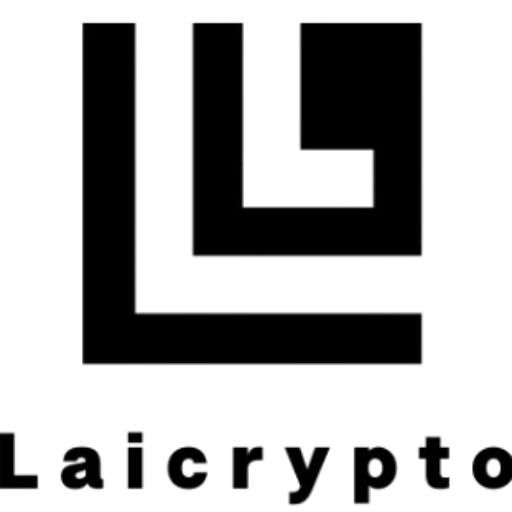Subscribe to Updates
Author: Michael Johnson
Wyoming has launched FRNT, the first stablecoin issued and backed by a US state government. The dollar-pegged token is fully backed by cash and Treasuries and managed by Franklin Templeton. Interest from reserves is directed to Wyoming public schools rather than token holders. Wyoming has formally entered the digital asset market by issuing the first stablecoin created and backed by a US state government. The launch places a publicly managed dollar-pegged token directly onto open crypto networks, marking a shift from privately issued stablecoins that currently dominate the market. Known as the Frontier Stable Token (FRNT), the project reflects years…
I’ve been thinking recently about post-apocalyptic wastelands. Specifically, about this scene from Mad Max: Fury Road, when the main characters have just escaped the first wave of pursuit, and are staying ahead of their would-be captors. They need to keep moving, but still need to do maintenance on the centerpiece of the movie: a gigantic “war rig” truck driving them to safety. So Charlize Theron climbs out under the cab to make some repairs en-route: The idea of conducting repairs on a big complicated truck while it’s still moving is just so appropriate for the film’s high-octane drama. It occurred…
As always, a lot continues to happen on the eth2 front. Aside from written updates (check out the State of Eth2 post below) and other public summaries, client teams, contributors, and community members/prospective-validators have been busy! Today, we’ll cover some significant deposit contract news, and big steps toward implementation of spec version v0.12. tl;dr Solidity deposit contract and formal verification Today, we’d like to announce a new and more secure version of the eth2 deposit contract written in Solidity! This contract retains the same public interface (with the addition of an EIP 165 supportsInterface function) and thus is an entirely…
*This is part #1 of a series where anyone can ask questions about Geth and I’ll attempt to answer the highest voted one each week with a mini writeup. This week’s highest voted question was: Could you share how the flat db structure is different from the legacy structure?* State in Ethereum Before diving into an acceleration structure, let’s recap a bit what Ethereum calls state and how it is stored currently at its various levels of abstraction. Ethereum maintains two different types of state: the set of accounts; and a set of storage slots for each contract account. From…
Testnets, testnets, testnets! tl;dr Medalla testnet Following the excellent stability of Altona and based on conversations with eth2 client teams, Medalla – the next multi-client testnet – will have a MIN_GENESIS_TIME of 1596546000 (or for those of you that don’t think in unix time — August 4th, 2020, 1pm UTC)! This is a major step up from Altona in the sense that Medalla is a testnet built for and maintained by the community. The multi-client testnets prior to Medalla were considered “devnets”, run primarily by client teams and members of the EF (see the Altona section of my last post…
After months of hard work from the eth2 research team, along with Consensys and DeepWork Studio, we’re happy to announce the release of the eth2 validator launchpad (testnet version). We’re releasing it now so that you can keep track of, and make deposits into, the upcoming Medalla multi-client testnet. But we’ll continue to fine-tune the interface in the run-up to mainnet launch. The idea behind the launchpad is to make the process of becoming an eth2 validator as easy as possible, without compromising on security and education. In contrast to using a third-party service, running your own validator comes with…
Ethereum can be simple enough to understand from a bird’s-eye view: Decentralized applications powered by the same sort of crypto-economic guarantees that underpin Bitcoin. But once you’ve zoomed in to, say, a street-level view, things get complicated rapidly. Even assuming one has a strong grasp on proof-of-work, it’s not immediately clear how that translates to a blockchain doing more than keeping track of everyone’s unspent transaction outputs. Bitcoin uses computational work to decentralize money. Ethereum uses computational work to decentralize abstract computation. Wut? That abstraction is called the Ethereum Virtual Machine, and it’s the centerpiece of the Ethereum protocol, because…
Your browser does not support the video tag. Today we’re excited to celebrate a huge milestone – Ethereum.org now supports 30 languages! 🎉🎉🎉 Since we launched the Website Translation Program seven months ago, we’ve seen how decentralized collaboration can result in a significant impact in the ecosystem, benefiting hundreds of thousands of community members around the world. As of today, 467 volunteers from 52 language groups have helped make ethereum.org accessible to non-English speaking communities in their mother tongues. Thanks to these volunteers, 16% of all traffic to ethereum.org is now directed towards non-English versions of the site. Over time,…
Five years ago today, Ethereum’s genesis block marked the official network launch. Today, most members of the community spend their time thinking about all of the work that’s left to be done, but it’s also important to recognize on this fifth anniversary of Ethereum’s launch just how unbelievably far we have all come, what a wild adventure every twist and turn has been, and how much all of us (and the technology) have grown. There were times when some hoped that the protocol would just run as intended, or that builders might try to launch the first applications, that users…
All eyes on Medalla testnet — genesis in less than 24 hours 👀 tl;dr Medalla testnet launches tomorrow 🏅 The minimum validator deposits (16k+ of them) required to kick off the Medalla testnet were met on Friday, which means the genesis of this testnet is set to happen at 1596546008 Unix time, or 8 seconds after August 4th at 1pm UTC. If you’re curious as to how that time is calculated, check out Ben Edgington’s quick genesis explainer. The launch of Medalla is a huge milestone in the development of eth2 — if Medalla proves stable, mainnet launch is next…


